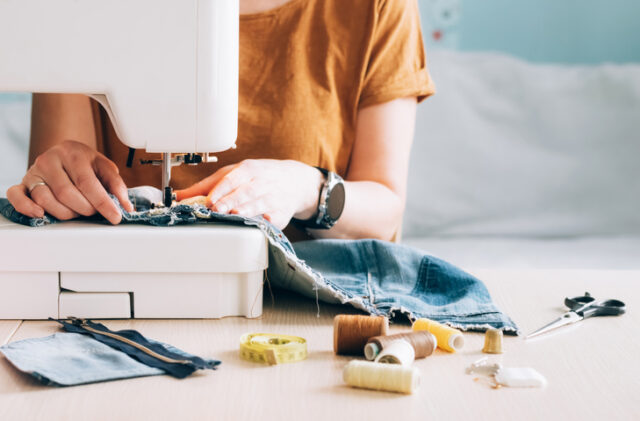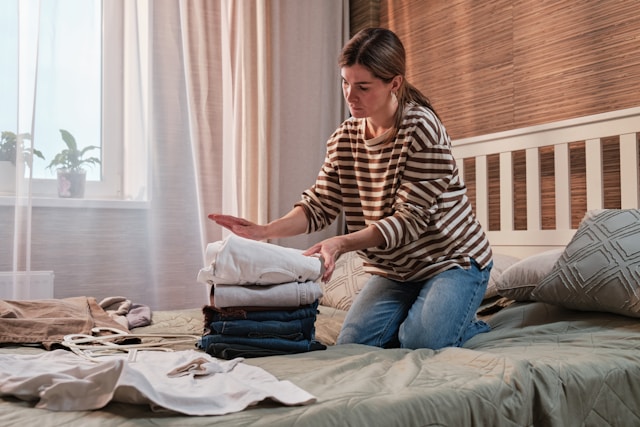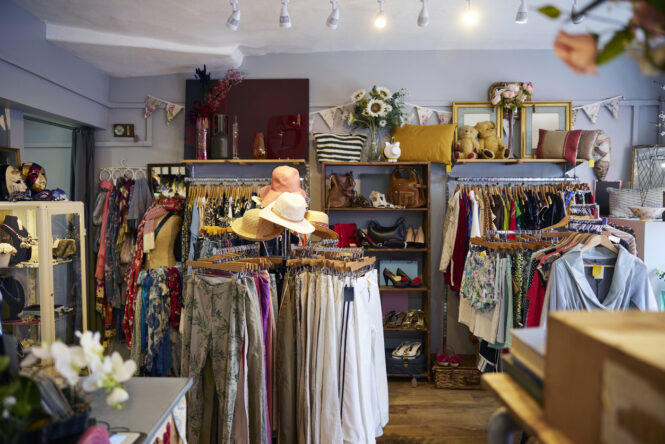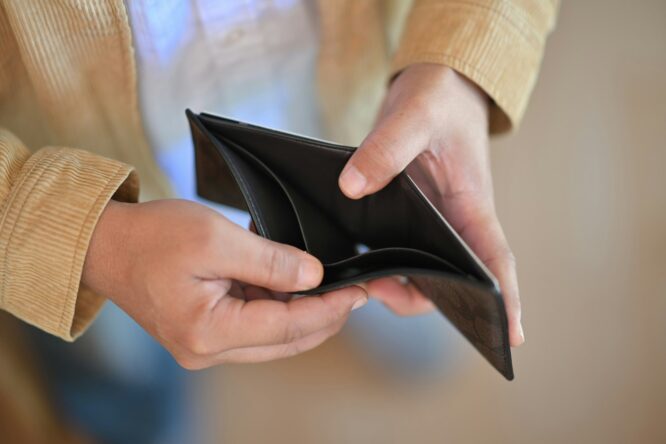Living frugally is often seen as a modern money-saving strategy, but in many ways, it’s just a return to how people used to live.

Before credit cards, Amazon Prime, and constant upgrades, people made do, got creative, and valued simplicity. Choosing a frugal lifestyle today can feel like stepping into the past, but not in a bad way. It’s a kind of nostalgic rebellion against the pace and pressure of modern consumption.
1. You start fixing things instead of replacing them.

Frugality brings back the lost art of mending, whether it’s sewing up a tear, gluing a broken mug, or learning how to patch a leak instead of calling someone in. It’s a direct nod to older generations who couldn’t afford to throw things out just because they weren’t perfect anymore.
Fixing what you already own shifts your mindset from disposal to preservation. There’s pride in keeping something going, and it subtly changes your relationship with your belongings. You care more when you invest in their upkeep.
2. You become more comfortable with ‘good enough.’

There’s a quiet shift that happens when you stop chasing upgrades and start appreciating what already works. Your phone doesn’t need to be the newest model, and your clothes don’t need to follow every trend. Older generations lived with what they had until it wore out, and didn’t feel behind because of it.
Frugal living echoes that mindset. You learn to detach from comparison and status symbols. Eventually, “good enough” starts to feel like peace, not a compromise.
3. You start cooking more from scratch.

From homemade bread to soups made from leftovers, frugal living encourages a return to the kitchen—not for novelty, but out of practicality. Prepackaged convenience costs more, and older generations knew the best way to stretch a budget was by cooking at home.
You begin to see food as a resource, not just a product. Planning meals, using up what’s in the fridge, and making use of every ingredient becomes second nature. It’s slower, sure, but it’s often healthier, more satisfying, and far more personal.
4. You value seasonal produce again.

Shopping seasonally used to be the norm. People ate what grew near them and what was available that time of year. Frugal living brings that habit back, whether it’s because local fruit is cheaper or because growing your own veg suddenly sounds worth it.
It makes you more mindful. You begin to notice the rhythms of the year—not through calendars, but through what shows up on your plate. And with that awareness comes a kind of gratitude for the simple, shifting abundance of each season.
5. You reuse, repurpose, and reinvent.

Before recycling bins existed, people were already reusing everything. Jars became storage, clothes were handed down or repurposed, and scraps were turned into quilts. Frugal living brings that creative practicality back in a surprisingly fun way.
Instead of throwing things away, you start asking: what else could this become? It’s a small shift, but one that adds a sense of resourcefulness to everyday life. Waste feels uncomfortable because now, you know what potential might be hiding in it.
6. You rely less on convenience, and more on your hands.

Frugal living often means skipping the shortcut. It’s doing laundry yourself, hanging clothes to dry, walking instead of driving, or batching errands instead of making five separate trips. None of it is glamorous, but it adds up. This slower pace can feel old-fashioned in a world that thrives on speed, but it also creates space. You start noticing small details again. Tasks become rituals, and while it might seem like more work, it often feels strangely grounding.
7. You discover the value of secondhand.

Thrift shops, hand-me-downs, and passed-down furniture used to be a normal part of life. Now, embracing secondhand is a quiet act of rebellion against throwaway culture, and a frugal win every time. You start to appreciate the character in older pieces, the stories behind them, and the satisfaction of not paying full price. Shopping becomes more about the thrill of a smart find than the pressure to keep up.
8. You live with less—on purpose.

Minimalism is often sold as a modern aesthetic, but at its core, it’s an old-school idea: make do with what you need. Frugal living brings you back to that. You stop filling space just because you can, and start appreciating what’s already there. That simplicity isn’t empty; it’s freeing. When you’re not constantly acquiring, you realise how little you truly need to feel comfortable, capable, and content.
9. You swap more than you shop.

Neighbourhoods used to function like informal trading posts—borrowing tools, swapping baked goods, passing around baby clothes. Frugal living brings back that sense of shared resources and mutual help. Whether it’s lending a book, joining a Buy Nothing group, or hosting a clothing swap, you start leaning into community instead of consumerism. It’s relational, not transactional, and often surprisingly fulfilling.
10. You make entertainment out of the everyday.

Before subscriptions and screens filled every hour, people found joy in walks, card games, music, and conversation. Frugal living naturally pushes you toward simpler, slower ways to unwind because they cost less and often feel more genuine. Evenings become about making your own fun. You rediscover the pleasure of hobbies, puzzles, or just doing nothing at all. It’s not flashy, but it brings a kind of calm that’s hard to buy.
11. You take pride in self-reliance.

Past generations knew how to sew, grow, fix, and stretch. Frugality revives those skills—not just out of necessity, but out of pride. There’s a quiet confidence that comes from knowing how to take care of your needs without outsourcing everything. You don’t need to be an expert in everything, but learning to do more with your own two hands creates a connection to your life that passive consumption just can’t offer. It’s empowering—and yes, a little bit nostalgic.
12. You stop seeing money as the answer to everything.

Frugal living forces you to get creative. You realise that many problems aren’t solved by spending—they’re solved by rethinking, slowing down, or doing without. That shift in mindset is powerful and deeply reminiscent of earlier times, when money was tight and resourcefulness was everything. As you rely less on purchases and more on problem-solving, your confidence grows. You stop measuring value by price tags, and instead start noticing the richness in things that cost nothing at all—time, care, community, and contentment.




